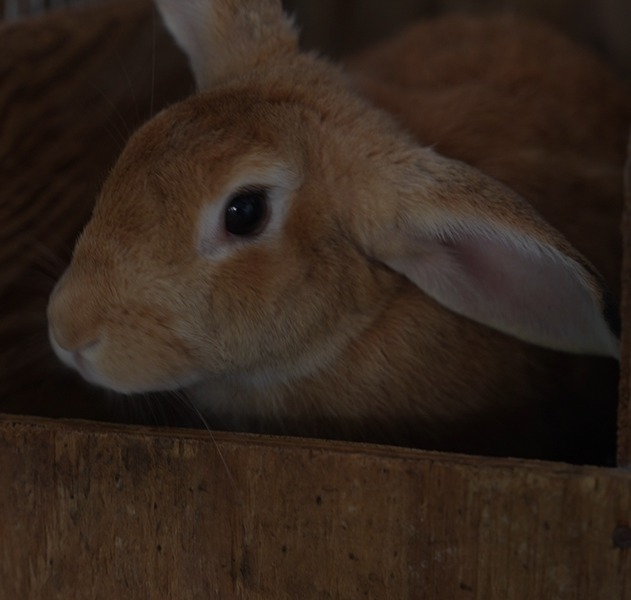Darren “Bugsy” Banton Joseph often has visitors to his farm approach him with the question, “What’s up, Doc?” Banton Farms raises livestock, including rabbits, and Joseph belongs to the Tobago Agricultural Society (TAS). He’s passionate about growing sustainable agriculture both in his business and across Trinidad and Tobago.
TAS introduced Joseph to the USAID-funded John Ogonowski and Doug Bereuter Farmer-to-Farmer Program, which is led by the International Programs in Agriculture department at Purdue University and the University of the West Indies at St. Augustine. Through this program, producers in Trinidad and Tobago can identify a need for their business or community and be connected with U.S. volunteers who have expertise in that field and can help producers learn a new skill or get the resources to solve the need they had identified.
During the pandemic, coordinators with the Farmer-to-Farmer Program were able to connect Joseph virtually to volunteers in Indiana who specialized in urban agriculture and covered information on rabbits, which he raises for meat. He said the experience “was tremendous,” and he gained insight into technical language within his business community, learned the uses of different rabbit breeds, practiced how to keep genealogical records of his animals and built up the confidence to ramp up his rabbit business.
 Joseph explained that the main focus of the Farmer-to-Farmer training was sustainable urban agriculture. “I started to apply technical advice to overcome the struggles I was having with the farming of rabbits and learning to use the breeds that I have to produce better meat quality.”
Joseph explained that the main focus of the Farmer-to-Farmer training was sustainable urban agriculture. “I started to apply technical advice to overcome the struggles I was having with the farming of rabbits and learning to use the breeds that I have to produce better meat quality.”
The training helped Joseph grow his business and take advantage of the companion animals market in Tobago. He learned how to raise, advertise and sell rabbits as pets. This broadening of consumers increased Joseph’s sales and brought in more revenue to his farm.
Joseph also learned other valuable lessons. “I was learning how to acquire grant funding, structure my budget and my budget proposal. I would like to take the Farmer-to-Farmer program again to learn more logistics and how to gather and get breeds into the country from places like Florida and maybe as far away as from New Zealand and Australia.”
Even though the pandemic meant Joseph’s interactions with the U.S. volunteers were online, he enjoyed his time in the program. The breakout room sessions during the video calls, his favorite part, helped him network with other individuals involved in the program.
Joseph shared, “What I loved about the training was making new connections that get you to realize that you can forge even better partnerships to help you grow.”
The volunteers’ enthusiasm rubbed off on Joseph and motivated him to further his own production as well as to encourage other farmers to get involved. “The information was so well-delivered and helped me realize how important local produce is to the development of people and their nutrition. I would strongly recommend that all farmers, whether you're part-time or full-time, join events in the Tobago Agricultural Society and take all the opportunities to gather, learn and get the knowledge in the Farmer-to-Farmer training program.”





